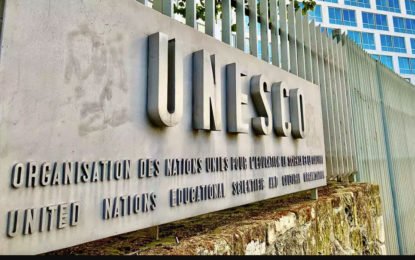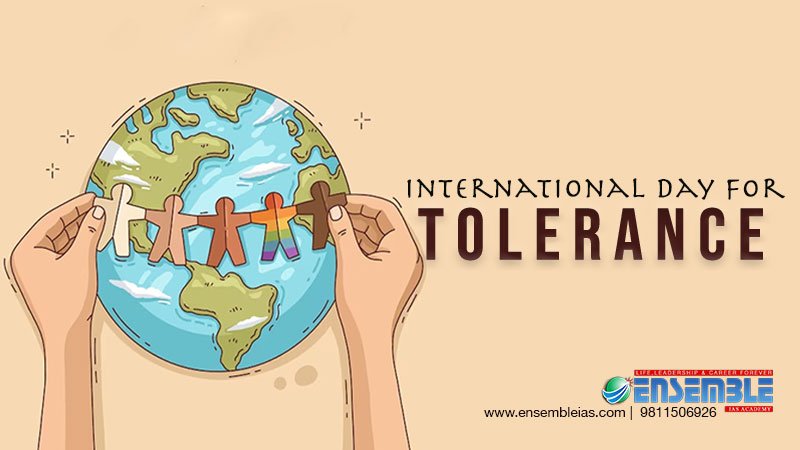International Day for Tolerance
The world represents a diverse tapestry of cultures, traditions, languages, ethnicities, and art forms. Originating from different corners of the globe, these facets traverse countries and people. Tolerance enables us to find joy in honouring traditions and cultures that may be unfamiliar to us.
When we exhibit disrespect and intolerance towards unfamiliar cultures, we sow discord, conflict, and disrupt the equilibrium of our world. There is immense gratification in acceptance and tolerance. International Day for Tolerance is commemorated to raise awareness about the importance of tolerance and its significance in our global community. Each year, this special day is celebrated on November 16, falling on a Thursday this year.
The link to join the course : Online Courses
International Day for Tolerance: History
In 1996, the UN General Assembly, through resolution 51/95, invited UN Member States to observe the International Day for Tolerance on November 16. Numerous activities, spanning educational institutions and the wider public, were organized to highlight the significance of tolerance. It is worth mentioning that UNESCO’s initiative during the 1993 UN General Assembly was carried forward in response to the United Nations Year for Tolerance proclamation in 1995.

On November 16, 1995, the UNESCO member states adopted the Declaration of Principles on Tolerance and a Follow-up Plan of Action for the Year. This Declaration asserts that tolerance is neither indulgence nor indifference, aiming to raise awareness about its critical role.
Significance:
The commemoration of this day carries great importance in terms of creating awareness about tolerance and its impact on cultures and socio-economic groups. The day emphasizes the bridging of gaps between communities and the promotion of sensitization. Encouraging tolerance on personal and professional levels is vital for building a better world, as it fosters balance.
UNESCO-MADANJEET SINGH PRIZE TO PROMOTE TOLERANCE AND NON-VIOLENCE
In 1995, UNESCO established a prize to promote tolerance and non-violence, aligning with the United Nations Year for Tolerance and marking the 125th anniversary of Mahatma Gandhi’s birth. This prize, named after Madanjeet Singh, who sponsored the celebrations in that year, recognizes significant contributions in the fields of science, art, culture, and communication. It can also be awarded to institutions, organizations, or individuals who have made effective contributions to tolerance and non-violence.
Do-it-Yourself Tolerance Program
Compose your own tolerance curriculum or program by outlining the key components of tolerance and the most effective methods for imparting tolerant values. Scrutinize your textbooks, television, newspapers, and magazines for instances of stereotyping, including gender roles, as well as assumptions about nationalities and ethnic groups. Determine the tolerance priorities for your town, country, or region.

Importance of Tolerance
Tolerance stands as a pillar within society. In the era of globalization, people from diverse backgrounds, cultures, and faiths coexist. Establishing tolerance and harmony is therefore crucial. Tolerance fosters a society in which individuals feel valued and respected. Each person possesses their own space for ideas, beliefs, thoughts, and dreams. But in today’s world we find ourselves in a society which is intolerant, disrespect towards each other’s religion, belief. It is so extreme that they become ruthless and start a fight out of nothing. This is found throughout the globe otherwise why would be see the Ukrarian war, attack on Gaza resident, fights that are going on in Israel or China participating on any opportunity to attack on the borders of India?
Undoubtedly, for a society to thrive with love and well-being, tolerance is indispensable. We should respect other cultures, castes, colours, and creeds. However, it is important to recognize that tolerance should not be limited to one party showing patience and acceptance while the other does not. Tolerance should be expressed by all parties. It facilitates personal growth by encouraging open-mindedness and embracing diverse perspectives.
Respecting and tolerating behaviour does not mean compromising one’s principles or involuntarily embracing others’ ideas. It is essential to bear in mind that tolerance is a fundamental human right.
Therefore, the celebration of International Day for Tolerance on November 16 centres on promoting tolerant behaviour and non-violence for the betterment of society.
Best Online Coaching for Civil Service_IAS_ UPSC_IFS_IPS
Free Study Material ENSEMBLE IAS ACADEMY | Call +91 98115 06926
Visit us:- https://ensembleias.com/ | Online Store: https://online.ensemble.net.in/
#International_Tolerance_Day #Tolerance #Tolerance_day #behaviour #society #celebration #civil_services_study #ensemble_ias_academy #geography_optional #k_siddharthasir #ias #upsc_exam #civilservices #upsc_motivation #upsc_aspirants #trendsingeography




